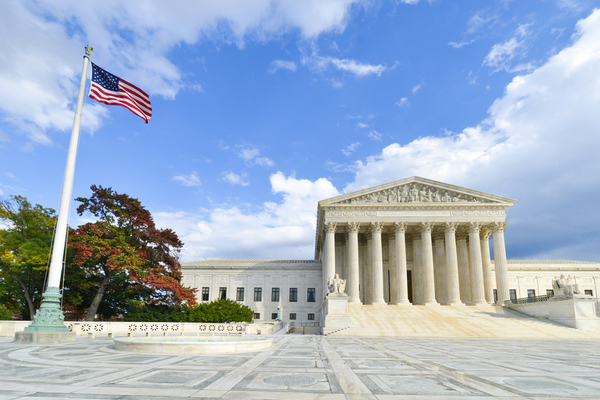Click here to read Part I and Part II of this series.
Judicial review is based on these three principles:
- The Constitution is the supreme law of the United States;
- The Supreme Court possesses the ultimate authority in constitutional rulings; and
- The judiciary is obligated to rule against any law that conflicts with the Constitution.
The Constitution’s words matter, literally, and where explanation is necessary, the founder’s writings are sourced to explain rejection or confirmation. So where did judicial review drift from its intended purpose?
Let’s continue with the topic of Naturalization, a topic wherein the Supreme Court exceeded its charter.
Article I, Section 8, Line 4 specifically states that Congress has the “Power…to establish an uniform Rule of Naturalization…throughout the United States.”
This limits any Supreme Court power to accomplish social engineering by judicial activism with regard to Congress’s exclusive Constitutionally mandated power.
Most recently, the Illegal Immigration Reform and Immigrant Responsibility Act (IIRIRA) of 1996 gave immigration officers authority to deport on determination of fraud, misrepresentations or invalid documents, as well as setting the United States Attorney General as the solitary agency to naturalize.
Such is not the case today! The Supreme Court has created processes by which illegal immigrants (i.e., persons who have broken the law to be in the United States) enter the country and become eligible for benefits such as education, tuition assistance, legal practice, and welfare assistance, all financed by citizen taxpayers.
The Supreme Court in Heim v. McCall, 239 U.S. 175 (1915) and Ohio v. Deckenbach, 274 U.S. 392, 393 (1927) found the Fourteenth Amendment required the states to make competent and responsible decision to not distribute public benefits to non-citizens as a sacred obligation entrusted to them by the citizen (taxpayer).
Activism raised its hoary head as the Supreme Court found authority to meddle in this congressionally-assigned power through the Fifth Amendment due process clause and in the Fourteenth Amendment term – "person." In 1969 the Supreme Court began the change process from its earlier position on immigration respective to illegals.
In Graham v. Richardson, 403 U.S. 365 (1971) Justice Blackman determined state restrictions on welfare benefits for aliens (but not for citizens) violated the Equal Protection Clause of the Fourteenth Amendment.
The judicially activist concept called “strict scrutiny” came into being, providing government support for non-citizens. Shouldn't Congress determine this issue under its assigned constitutional power?
Lawmaking power was assumed by the Supreme Court, regardless of it not being one of its Article III powers.
Judicial activism reared up again in Hampton v. Mow Sun Wong, 426 U.S. 88 (1976). Federal Civil Service Commission (CSS) regulations did not allow illegal aliens to be employed. Justice Stevens found that CSS regulations violated the Fifth Amendment due process and equal protection regarding their right to hold a job, ignoring Congress’s written intent that CSS jobs be reserved for U.S. citizens.
Therefore, judicial scrutiny was mandated to protect an arbitrarily selected class, previously non-existent in the United States.
Though not a complete return of congressional authority, the Supreme Court has reversed its earlier opinion against states rights to distinguish between citizens and non-citizens for taxpayer funds.
Yet in Plyler v. Doe, 457 U.S. 202 (1982) (a public education issue), Justice Brennen extended “person” from the Fourteenth Amendment to include illegal aliens. If such laws need to be made, they are the responsibility and purview of local and state governance under the Tenth Amendment.
The supreme duty of our highest court (abandoned by recent justices) is yet another reason to join Convention of States and exercise your rights under Article V of the Constitution to bring government back to the Founders' vision.
The individualism the Framers intended has been overrun by a subservience to government’s whim, government-incentivized greed, and overt bureaucratic control.
The Declaration of Independence established that our rights originate from God--not from government, not England’s King, and not from the judiciary in Article III.
Calling an Article V convention requires a resolution to be passed in 34 states. Fifteen states have now successfully adopted the Convention of States Action resolution, while several more are making progress and have active legislation.
If we hold these truths as self-evident, Article V begins to swing the ship of state back to its original and intended course.






